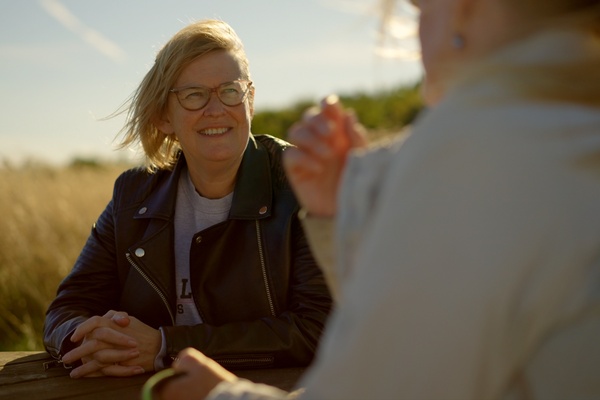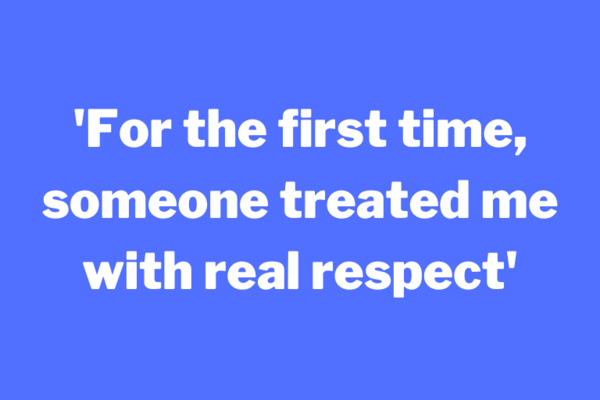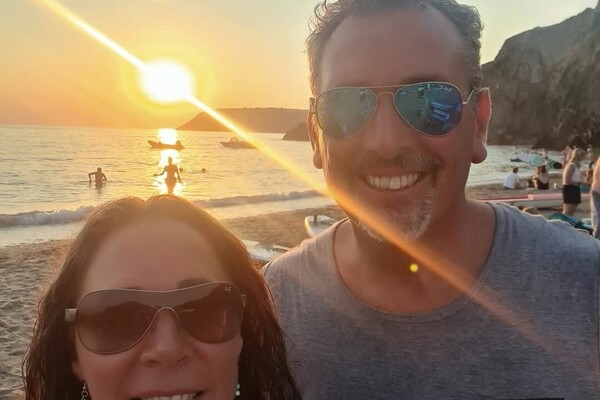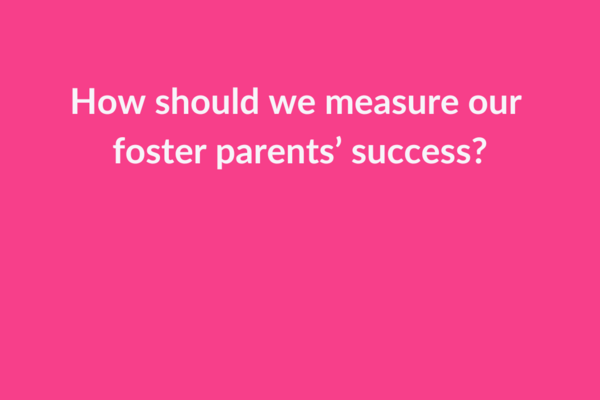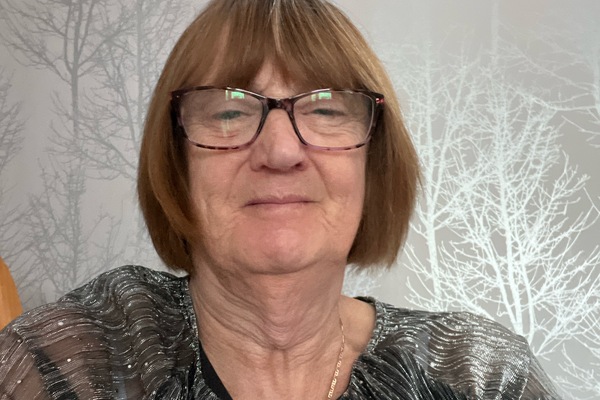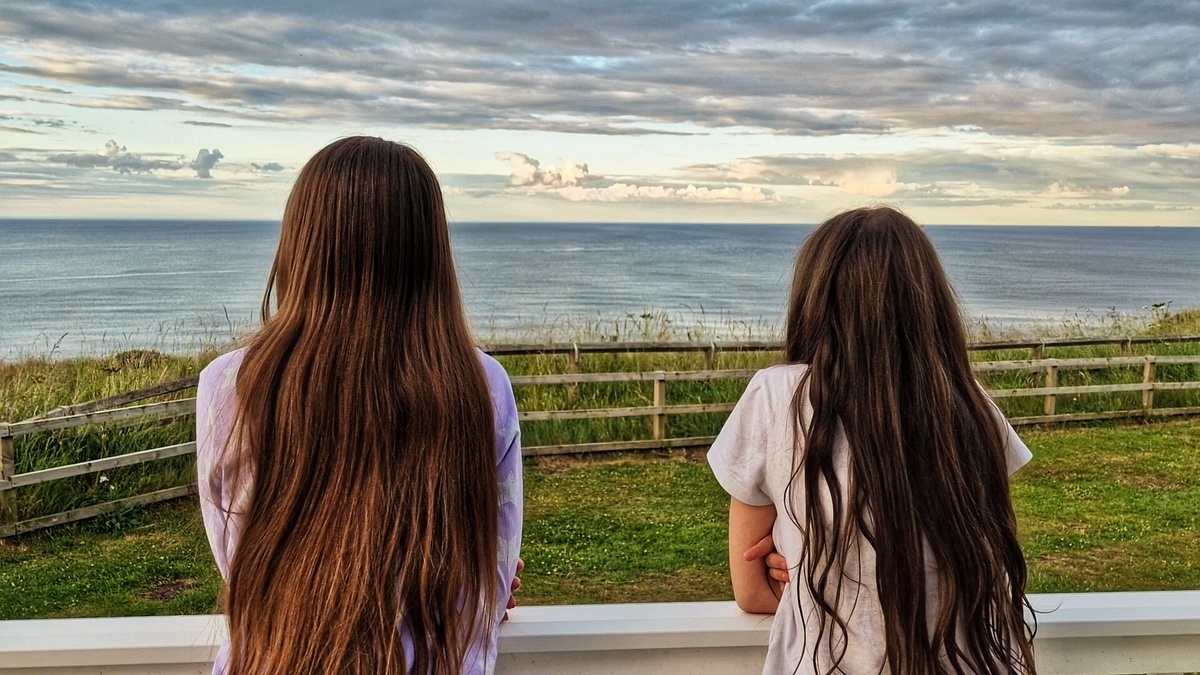
Let’s start with your ‘why’. What was it about fostering that made you want to get involved?
I was a bonus baby, my parents said, not a mistake. With an eighteen-year age gap between myself and my eldest brother, Mum and Dad thought it would be nice to have other children around me when I was growing up. They fostered until I was nine. After having my son I kept telling my husband that we should look into fostering, but he wasn’t keen. When our son turned seventeen – and after years of nagging! – he finally agreed. We rang up our local authority and Team Fostering, which is the agency we’re with, and we did lots of research. Thirteen years on, we’re still doing it. We’ve had sixteen children and we never say goodbye to them. Some of the young people who have lived with us get in touch every now and again, and some of them are in touch constantly - more than my son - and I wouldn't change it.
You initially sounded a bit keener than your husband. What was he concerned about and how did you get around this?
Neil’s mother was a social worker in children’s services. When he was growing up, he saw how upset she was after she’d had to remove children from their home or from placements. He was worried about this, and a little concerned about how it might affect our son as he'd been an only child for seventeen years. Once we looked into it and started doing the Skills to Foster training he came on board. Finding the bits that really interested him helped: he loves to know how things work so when we looked at things like the brain development he really bought into it. We support each other fully, and the kids absolutely adore him.
How was the recruitment process? Did you come across anything that surprised you?
Initially we were a little scared that we weren’t going to be good enough to do it. It feels a bit like going for a job interview, but over time you learn that is no such thing as a perfect family in fostering. We’ve been really successful with many of the children who have stayed with us, but they might not have got the same results if they'd been placed somewhere else. Equally, there are many children who wouldn't fit into our lifestyle because we're quite outdoorsy. We have ponies so we spend a lot of time outside in the cold and mud. There are many preconceptions about what a foster carer should be, but as long as you have a spare bedroom for a child and you've got time to give to that child, there will be someone out there who will fit in with your family.
What's the most rewarding part about fostering?
Seeing how the children change during their time with us. My big story is T, who came to us at fourteen with very low self-esteem. He’d never been abroad before, and when he left us I drove him down to Heathrow Airport and he got on a plane to Shanghai where he studied for a year. He came back a completely different person: he had a fabulous time and he got to see things like the Terracotta Army. Back in the UK, he went to the University of Wales to complete his degree in Chinese Studies. Just seeing him going from that place of low-esteem to where he is now is such an incredible transformation. He’s still very much part of our family: we spent New Year with him and helped him move into his new home.
It’s not just about these big changes: the small ones are just as important. Two children came to stay with us for three months, and then went home to their parents. The little girl didn't have much confidence. She barely spoke at nursery and was always very quiet. Her teacher was blown away when she had the confidence to stand up in front of her class and talk about a spoon that she’d decorated like the garden and what it meant to her.
We have four children at the moment, two of which we’ve got special guardianship with so I share parental responsibility with their parents, and social services aren't involved at all. Sometimes they all love each other and sometimes they're ready to murder each other, and for me that's what families are all about. To start with you get that honeymoon period where the child and the foster family are trying to figure each other out, and everyone's on their best behaviour. When they start answering back you know they've relaxed into it, and you can move forwards from there.
And what’s the most challenging part of the role and how do you handle this?
We don't always get to make decisions that we think are in the child’s best interest, because local authorities have parental responsibility. It can get frustrating when social services decide things like which school to send them to without really knowing the child. If you have a good relationship with children's social workers, which I do, they usually take on board what you say.
Fostering isn't always easy. Another challenge is watching children make choices that you know aren't good for them. Our first young man arrived with the police at 11 o'clock at night. It was supposed to be for one night, but he stayed for ten months. In those ten months he refused to go to school and he ran away frequently. One of my neighbours once caught him sat on a bench in the village at two o'clock in the morning. He needed to take some control of his life and that was how he did it, but sitting up and waiting and worrying about them is hard. This placement didn’t work out because we weren’t where he needed to be at the time, but he still stays in touch. He rings my husband Neil to ask things like what we put in the rice to make it yellow – cumin – and sometimes it’s because he wants to know, sometimes it's because he just wants to touch base.
What ongoing support or training do you find really helps you with your role?
When you start on the first rung of fostering you get Skills to Foster, which gives you a basic understanding of what's involved before you go to panel and get approved as a foster carer. Training is then ongoing, with things like first aid and de-escalation. I particularly find it helpful when care experienced young people come in and talk about their journey. It’s important to hear what it was like growing up within the system, because it is a system and we need to listen to things from their point of view. I also find it really helpful when they bring foster carers together, because quite often you pick up as much from them as you do from the training session itself. The IFA we work with has 24/7 support, and there’s always someone at the end of a phone. Sometimes you just need someone to tell you that what you're doing is right, sometimes you need more help, but knowing you can call even if it’s 2 o’clock in the morning is invaluable.
You’ve mentioned that your family is big on the outdoors: how important do you think those extracurricular opportunities are for young people in care?
With all children, it's finding something that they are good at and that they enjoy. This builds their self-esteem and resilience, and that's when they can start make making changes for themselves. We do a lot of activities, but it’s led by the child and what they enjoy. Tonight our five-year-old is doing yoga after school club, and our eight-year-old is playing tennis. Academically she struggles, but she’s doing marvellous at her sport. The most important thing is that she enjoys it, she’s found a place where she fits in and she’s made some lovely friends.
What advice do you have for other foster carers?
We all get times where we think we could have done something differently, where we wish we'd said this, or wish we'd done that. We can't change that. But, we also have the highs and it’s important to hang onto these through the tough times. The first time I took my two girls abroad, they sat on the aeroplane and squeezed my hand so tightly as it took off. It those things that keep you going. It's not always the big things, but knowing that you are making a difference to someone's life.
Don’t get me wrong, there are times when I would be quite happy to go into the bathroom, lock the door and stay in there for a couple of hours. It’s not always easy, but it’s a privilege to be part of their life. With a lot of children, you only need one person to believe in you and that's how you start believing in yourself. That’s something that we can do: when we believe in the children that we look after we can have the most far-reaching impact.

